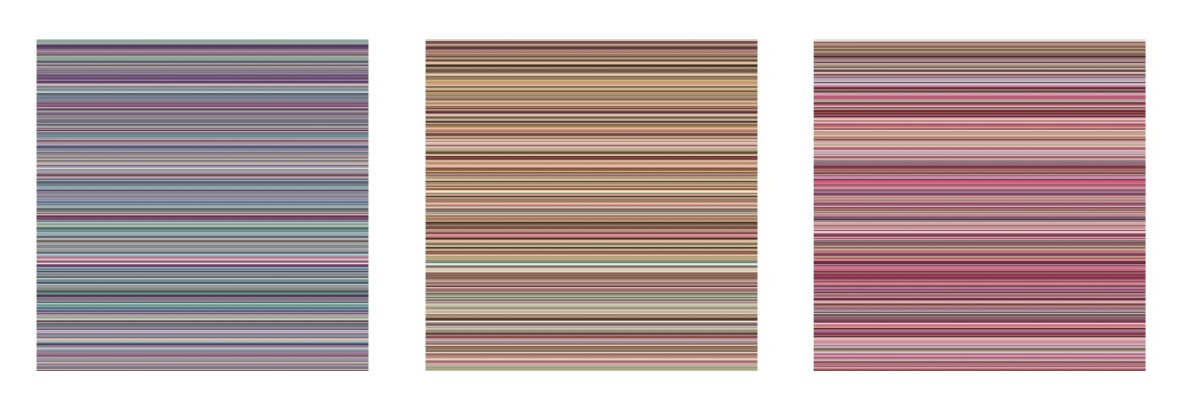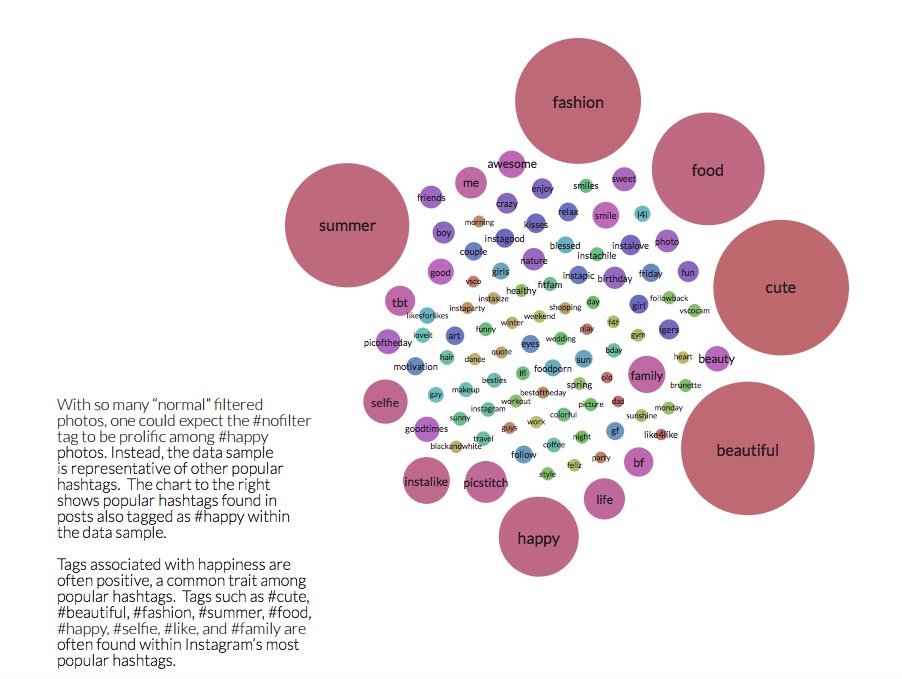When we scroll through Instagram it can seem like everyone’s having an awfully prosperous, happy, exciting life. That may be the case, but happiness on the internet is a cagey thing, best understood, perhaps, not anecdotally but rather in bulk. That’s what Brooklyn-based artist and technologist Brian Cavanaugh has done, with his new project #happy is….
So to dig into some data, Cavanaugh created a system to collect publicly posted Instagram photos with the hashtag #happy. After 12 months of collection and 100,000 photos, he had some nifty data to work with.
“Selfies are enormously popular with the hashtag #happy, which has an impact on the most common colors found in #happy photos,” Cavanaugh said in an email, describing one of the things he took from the project.
For many of Cavanaugh’s data visualizations, the primary color of each photo was given a horizontal line, which were placed one on top of the other.

“The amount of warm, muted tones found in #happy photos was one of the most surprising findings throughout the project,” Cavanaugh wrote. “Selfies and photos of friends and family may be responsible for many of the warm, skin-tone values that represent this database.”
Fun fact: It turns out, the most common Instagram filter is no filter.
“66 percent of photos in the sample were shared without an Instagram filter,” Cavanaugh wrote in the project. “Other filters are far less popular: Valencia (4%), Amaro (3%), Ludwig (2%), X-Pro II (2%), and Lo-Fi (2%).”
In Cavanugh’s visualization of the data, there is precision and meaning, but I asked him if he thought the works themselves were aesthetically beautiful.
“In a nerdy, data-centric sense, yes, I think the images I create are beautiful,” he responded. “There is a balance between the results I am given, say, for instance, colors of #happy photos, and the aesthetic decisions that go in how the composition is created. So I try to stay true to the data while creating something that is aesthetically interesting, and hopefully, something that people enjoy.”

What is #happiness? One Brooklyn artist is using Instagram data to figure it out







